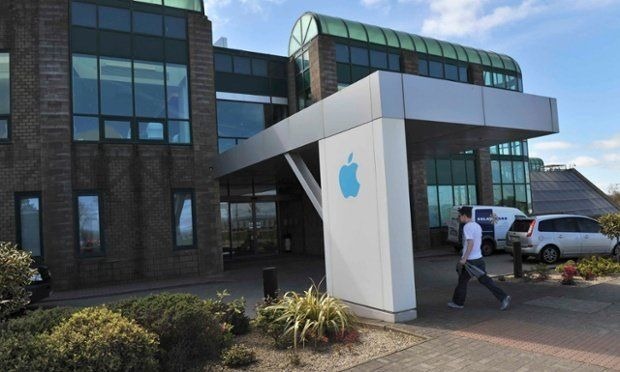Feds said to have filed appeal opposing Apple's retroactive $14.8 billion Irish tax bill
In a first formal step opposing the blockbuster tax ruling by the European Union, the U.S. government has reportedly filed with the European Union General Court to opposition the $14.8 billion mandate by the European Commission.
A report from Reuters claims that two sources within the Trump administration have filed with the appeals court. Little is known about the filing itself, but one of the two sources cited in the report claim that the General Court will heard the case in late 2018.
The investigation into Apple's tax affairs in Ireland ended in August 2016, with the Commission claiming tax rates on Apple's European profits were illegally low, down to 0.005 percent in 2014 and 1 percent in 2003. Ireland was accused of granting "illegal tax benefits" to Apple, and had been "reverse engineered" on the fly to guarantee a minimal tax bill as time progressed.
The Obama administration had spoken out about the ruling after it was made, with Treasury Secretary Jack Lew declaring that the European Union's investigation of the matter was "supranational" and a power grab against American companies.
"The U.S. Treasury Department continues to consider potential responses should the Commission continue its present course," wrote Lew. "A strongly preferred and mutually beneficial outcome would be a return to the system and practice of international tax cooperation that has long fostered cross-border investment between the United States and EU Member States."
The Trump administration has made no specific comment on the EU's ruling on the taxes in Ireland, but repatriation of cash held overseas was a frequent topic during the election cycle by both parties.
In December, Apple CEO Tim Cook and other high-level executives were invited to Ireland to discuss the ruling and future action. Cook declined to attend, with Apple citing the legal complexity of the case behind his refusal, a move that Irish politicians considered to be a snub to Irish people.
Both Apple and Ireland are contesting the ruling, with the Irish government "fundamentally disagreeing" with the findings and resisting the back tax repayments. Apple claims the European Union "took unilateral action and changed the rules, disregarding decades of Irish tax law, U.S. Tax law, as well as global consensus on tax policy."
Apple CEO Tim Cook has gone on record in opposition to the ruling, and has amplified the company's position on repatriation of the overseas cash at the same time.
"We've said at 40 percent, we're not going to bring it back until there's a fair rate. There's no debate about it. Is that legal to do or not legal to do? It is legal to do. It is the current tax law," said Tim Cook after Lew's filing with the EU. "It's important for everyone to understand that the allegation made in the E.U. is that Ireland gave us a special deal. Ireland denies that."
Note: Due to the political nature of this article, and continued violation of forum guidelines by readers on similar articles, comments have been disabled. To comment on this article, register for our forums for access to the "Political Outsider" section.
 Mike Wuerthele
Mike Wuerthele











 Marko Zivkovic
Marko Zivkovic
 Amber Neely
Amber Neely
 Christine McKee
Christine McKee
 Malcolm Owen
Malcolm Owen
 Mike Wuerthele and Malcolm Owen
Mike Wuerthele and Malcolm Owen

 William Gallagher
William Gallagher








